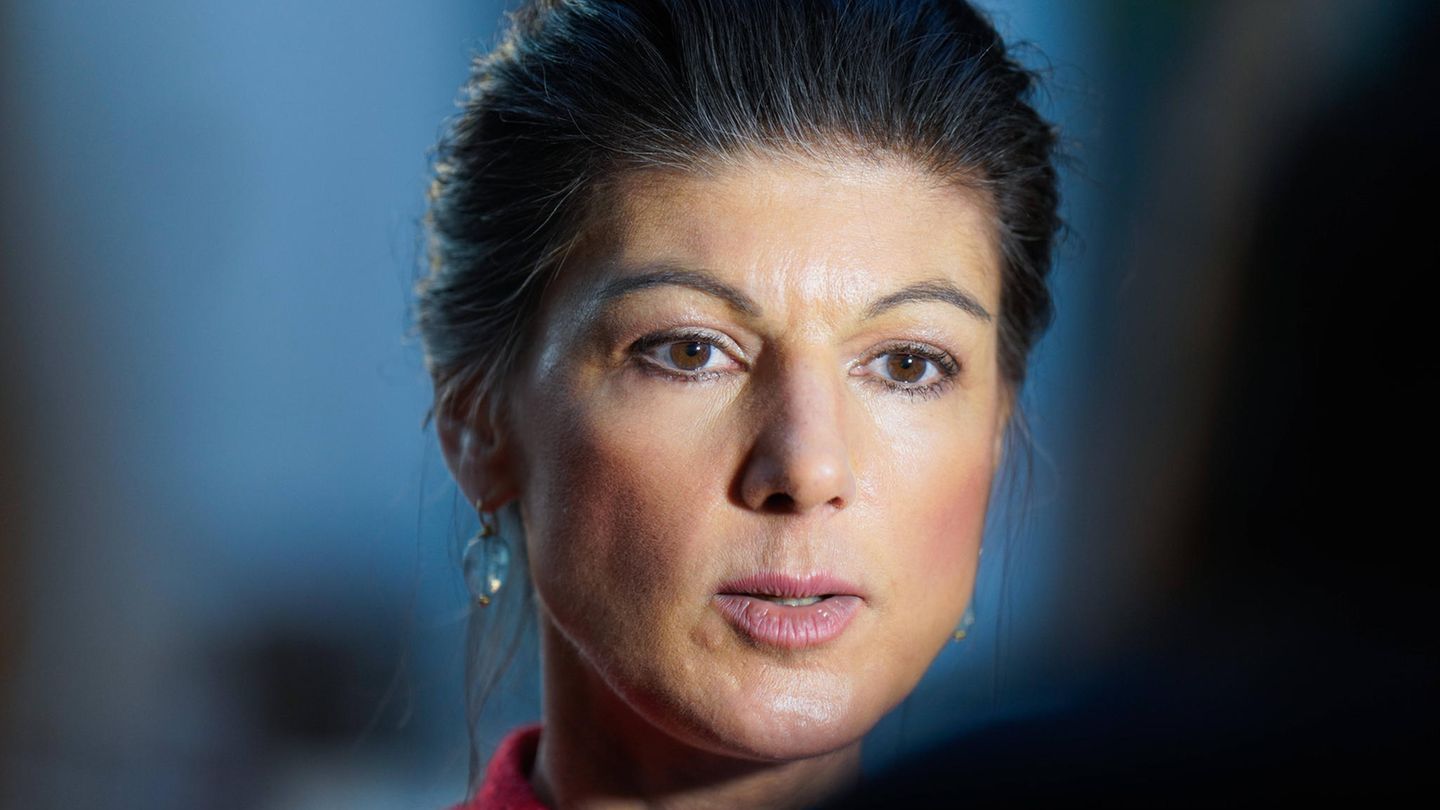On Saturday, the “Sahra Wagenknecht Alliance” invites you to its first party conference. The polls are reasonably good. But there are three dangers for the ex-left and their party.
The “Kosmos” cinema in the East Berlin district of Friedrichshain was a prestigious GDR project when it opened in 1961, the year the Wall was built. Numerous films such as the anti-war film “The Adventures of Werner Holt” premiered here.
On Saturday there will be a very special premiere in the building on the former Stalinallee, which is no longer used as a cinema: the first party conference of the new party “Alliance Sahra Wagenknecht” (BSW) will take place here. It is still unclear whether it will be a political thriller or a tragedy. Will the ex-left manage to shake up the party landscape with its alliance and establish itself as a new force? Or is the BSW ultimately just a temporary phenomenon, a temporary projection surface that will quickly come to an end again?
There are three risks for the new party:
1. Govern or oppose?
A “return of reason into politics” A look at the key points already presented and the party’s European program reveals what this looks like. Both combine more left-wing, progressive positions in social policy (higher minimum wage, more collective bargaining, breaking up monopolies) with socio-political approaches from the more right-wing, authoritarian spectrum (stricter rules for migration, fight against Islamist-influenced “parallel societies”, fight against “cancel culture”. “).
In terms of foreign policy, arms exports to Ukraine should be stopped immediately, peace negotiations should be accelerated and economic relations with Russia should be intensified again. Russia should be allowed to supply energy to Germany again. With regard to Europe, the aim is not for a “Dexit”, i.e. Germany’s exit from the EU, but for more national sovereignty.
With this combination, Wagenknecht not only fills a representation gap, but also makes her new alliance seemingly capable of joining in various political directions.
The problem: Your party will have to implement the promised change into concrete policy in the medium term. “Wagenknecht creates an expectation that she then has to fulfill,” says political scientist Constantin Wurthmann from the Friedrich Alexander University in Erlangen. At the same time, the young alliance lacks the self-discipline of established parties.
In practice, the new party could be forced to define its content more clearly and make compromises in one direction or the other after the state elections at the latest. The BSW in Thuringia could be faced with the question of whether it will enter into an alliance with the CDU after the state elections in the fall. Which could offend those who come to the Wagenknecht party from the center-left camp. If the BSW remained a pure opposition alliance, it would alienate those who want a new policy. If things go badly, the BSW could increase the loss of trust in politics instead of reducing it.
2. The Wagenknecht factor
The new party is focused on Sahra Wagenknecht, not just in name but in its entire orientation. The former Left Party leader is charismatic, clever and eloquent. With these qualities, she effortlessly fills even larger halls during her performances.
However, it is precisely this fixation that could become the party’s biggest problem. Despite her long political experience, Wagenknecht has no government experience, she cannot forge majorities and is not known to have organizational talent.
During her time as left-wing parliamentary group leader, she was responsible for TV appearances. Co-leader Dietmar Bartsch took care of the actual group work.
“Wagenknecht benefits from being a maximum projection surface,” says political scientist Wurthmann: “That makes her a figure of identification suitable for the masses.” But that also means that it needs excellent organizers who, at the same time, do not want to make a name for themselves but always subordinate themselves to Wagenknecht. It is still completely unclear whether her co-party leader Amira Mohammed Ali and other colleagues can fulfill this task.
3. The financing question
The new party can start with assets of around 1.4 million euros. The new treasurer was able to collect that much in advance. According to a report by “Spiegel”, there is also another million donated by a wealthy but not prominent couple from East Germany.
Not bad for a start, but significantly more is needed for the European election campaign and the three state elections in the fall (Saxony, Thuringia, Brandenburg). A state election campaign alone costs an estimated half a million euros on average.
A party usually has three financing pillars: donations, membership fees and state money. The former is likely to be exhausted at some point at the BSW. When it comes to membership fees, the party currently has the problem that it only accepts a very limited number of interested people so that the alliance is not infiltrated and destroyed by crazy people. However, state party financing only takes effect once a party has successfully run for state or federal elections.
And the alliance could soon face a completely different challenge: the more it succeeds in developing structures in the respective federal states, the greater their independence from the party leadership. And this makes Wagenknecht and her miscreants even less able to centrally control politics in the respective countries. Then exactly the trench and camp fighting that the AfD has been experiencing for a long time could begin.
Source: Stern
I have been working in the news industry for over 6 years, first as a reporter and now as an editor. I have covered politics extensively, and my work has appeared in major newspapers and online news outlets around the world. In addition to my writing, I also contribute regularly to 24 Hours World.




